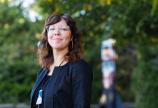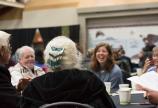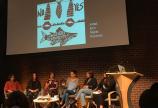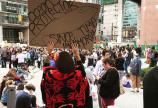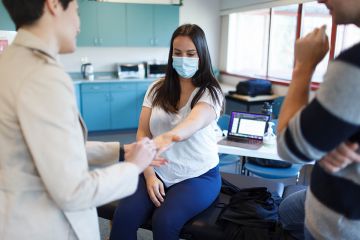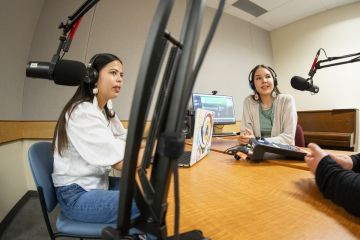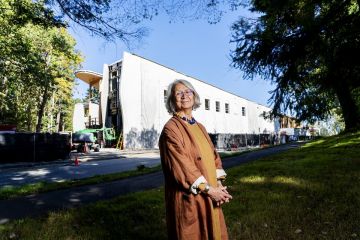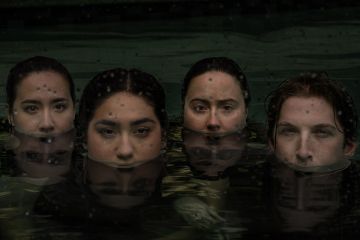Q & A on Indigenous political ecology
- Anne MacLaurin
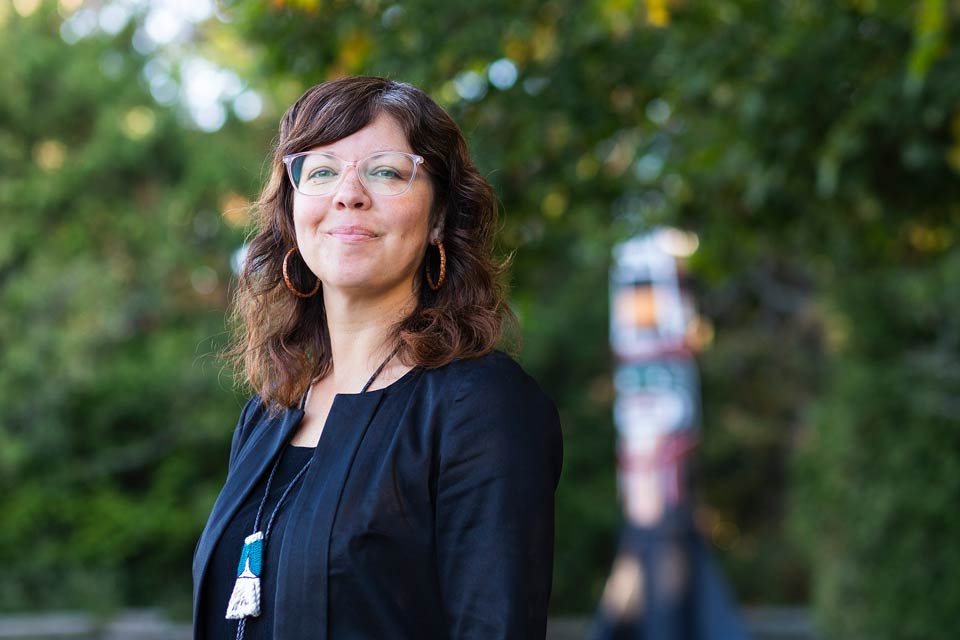
Canada Research Chair in Indigenous Political Ecology
Sarah Hunt / Tłaliłila’ogwa, a member of the Kwakwaka’wakw Nation from the northern part of Vancouver Island, grew up locally on the Songhees reserve in Lekwungen territories. Hunt competed her undergraduate degree at UVic, and PhD at Simon Fraser University, before moving on to serve as a professor at UBC for five years. She is a Canada Research Chair in Indigenous Political Ecology in UVic’s School of Environmental Studies, a prestigious professor position given to Canada’s best and brightest scholars. Here she sits down with The Ring to discuss her research, her return home, and what it’s like to be a role model for the huge number of Indigenous students who are changing the way academia works across the country.
Q. In addition to being a professor, you’re also a UVic alum. What brought you back to the island?
A. Since completing my undergrad at UVic, I’ve spent over two decades collaborating with Indigenous communities across Turtle Island. After working as a professor at UBC for the past five years, I was eager to come back home to the island so I can work more closely with island communities.
Q. What questions have you taken up in your research with Indigenous communities?
A. Most of my research has focused on various kinds of violence—systemic violence, interpersonal and gendered violence, and environmental violence. This work has exposed the problems within Canadian systems of law and governance, and the struggles we still have in trying to achieve justice for Indigenous People—whether in relation to questions of land title, environmental decision making, child welfare, or the crisis of gendered violence that has resulted in thousands of women and two-spirit people being murdered. In recent years, I’ve kept this focus but deepened my engagement specifically with Indigenous nations on the coast, so returning back to UVic and to the island lets me really immerse myself in these coastal communities.
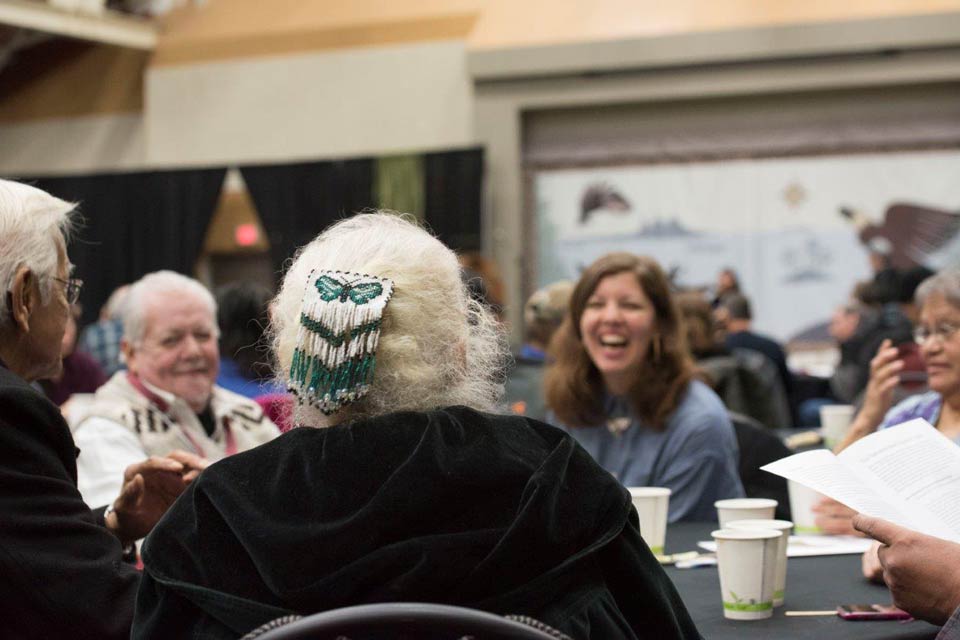
Q. Can you tell us more about your research chair?
A. In May, I started a faculty position in Environmental Studies, as Canada Research Chair in Indigenous Political Ecology. These research chairs are awarded to scholars who are doing innovative and potentially transformative work in their field. As an Indigenous woman, I feel especially honored because very few CRCs in Canada have been awarded to Indigenous scholars. Currently Indigenous People represent less than two per cent of all CRCs in Canada.
In this new role, I will be taking up questions of justice from within the perspectives of Indigenous People from the island nations—the Coast Salish, Nuu-Chah-Nulth and Kwakwaka’wakw. Our nations have always lived beside one another, and have worked in relationship while making decisions about our waters and lands, fish and trees, and wellbeing of our families.
Over the next five years, I will be undertaking research in collaboration with people from the island nations to look more closely at how we understand justice from within our culturally specific teachings and practices. Within many of our teachings, we as coastal people understand our lives to be deeply interwoven with the wellbeing of the ocean, lands, plants, fish, animals and spirit world that exist within our territories.
We don’t view these as resources or environments separate from us, but as living beings, or in some cases as expressions of the same spirit that animates who we are as peoples. So the research I’ll be doing will centre these teachings in order to understand what this means for achieving justice for our people, on our terms.
How is justice for our lands and waters interwoven with justice for young people in our communities? How do we think of ending violence against women, when we understand women’s lives to be inseparable from our ancestral obligations to ocean life? These are big questions, and I’m really excited to have this opportunity to immerse myself more in research that allows me to practice my culture, learn my language, and connect more deeply with people and places that my ancestors have always known.
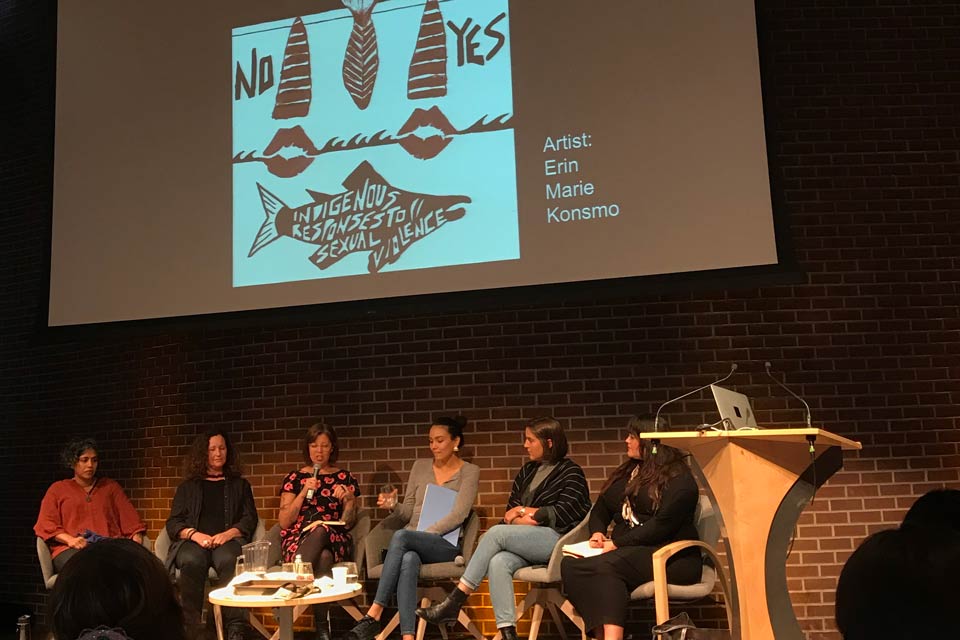
Q. How will you connect with Indigenous students?
A. As an Indigenous prof, I take my responsibility to Indigenous students very seriously. When I started my undergrad at UVic in the 1990s, I only knew of one Indigenous faculty member here—Lorna Williams in the Faculty of Education. Since then, the landscape for Indigenous faculty and students has drastically changed. But universities can still be a daunting place, and often a hostile place, for Indigenous students, community and faculty. I try to make my classrooms places where Indigenous students are seen and heard, and where their realities are centred. I work closely with Indigenous grad students to support them in designing graduate research that addresses the needs of their own communities. I’m also committed to supporting Indigenous student leadership, and believe in the power of student resistance movements in transforming colonial institutions—much of my own activism started here when I was an undergrad involved with the Native Students Union.
Q. What does it mean to be a role model?
A. Primarily, being a role model means walking the talk. By this I mean that it’s not enough for scholars to talk about social change or to write about questions of justice —we need to put our bodies on the line and immerse ourselves in the struggles our work is concerned with.
For me, this means showing up and actively supporting community events related to struggles over land, as well as over murdered and missing women and 2SQ people. It also means working in solidarity with struggles for racial justice, like Black Lives Matter, as well as housing justice, harm reduction and many other pressing issues of inequality that our communities are facing. I come to this work as an activist first, and a scholar second, and I want to show young people that you don’t have to leave your activism or your culture behind in order to succeed in your education. It’s not easy, but it is possible, to bring your whole self to a job like this.
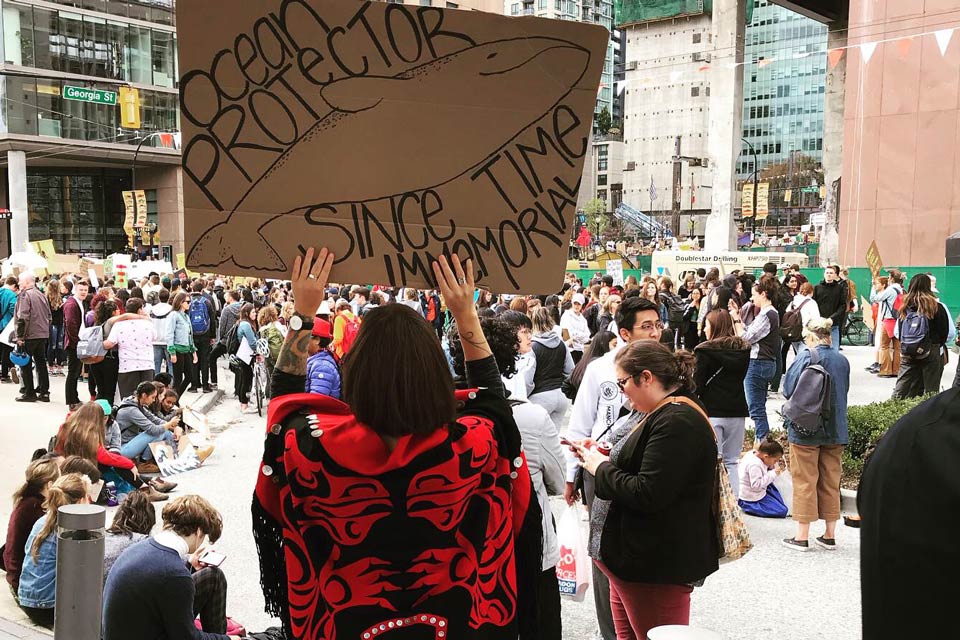
Q. What do you hope your research will achieve?
A. On a personal level, I hope that this research on coastal justice will allow me to learn my Kwak’wala language and to spend time in Kwakwaka’wakw territories where my ancestors have always cultivated a sense of themselves by knowing intimately the ocean, the shorelines and lands that sustain who we are as a people.
On a larger level, I hope to create space for us to change the way justice is talked about for Indigenous People, both within our own communities and in environmental movements, conversations on climate change, water governance and land rights. I hope the research will reveal tools and resources for coastal people to deepen our expressions of self-determination both in everyday ways and in the governance of our territories, and take significant steps to make a more just future for our next generations. Ultimately, I hope to lessen the violence Indigenous People face, by engaging in the resurgence of coastal philosophies and practices of justice with one another, our waters and lands, neighbours and kin.
Photos
In this story
Keywords: Indigenous, research, environment, gender, administrative
People: Sarah Hunt, Lorna Williams
Publication: The Ring

